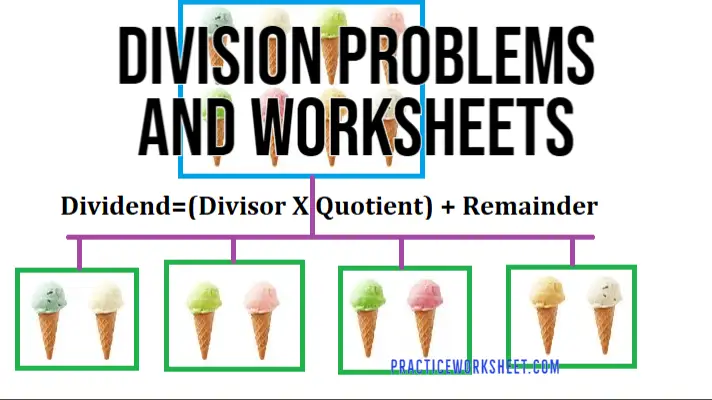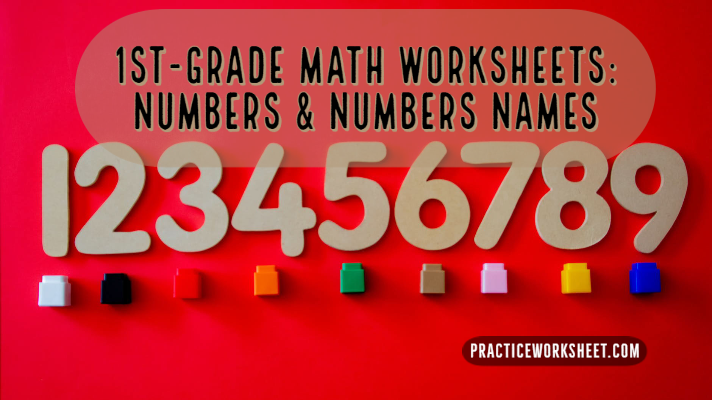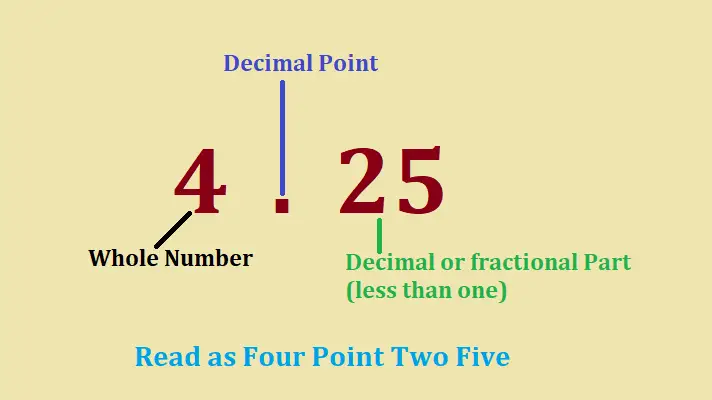The divisibility rule in mathematics is defined as the certain shorthand steps for finding if a given number is divisible by a fixed divisor (integer). Divisibility rules are a set of very useful specific rules which help users to determine the divisibility of a given number. The divisibility rules are developed to find if a number is divisible for numbers 2 to 20. In mathematics, divisibility rules are very useful and it makes the process faster by avoiding the actual division process.
How do divisibility rules work?
Divisibility rules examine the digits of the given number without performing the actual division. In the following section, we will explore more about the divisibility rules.
Divisibility Rule for 2
A given number will be divisible by 2 if the number is an even number. Even numbers are identified as numbers whose last digit is 0, 2, 4, 6, or 8. So, if the one’s position number is any of the above-mentioned numbers it will be divisible by 2. This rule is called the divisibility rule for 2.
Example: Let’s apply the divisibility rule for 2 for the numbers 456238 and 4789213. The last digit of 456238 is 8. So, it is divisible by 2. Whereas the last digit of 4789213 is 3. Hence, it is not divisible by 2.
Divisibility Rule for 3
A given number will be divisible by 3 only if the sum of all the digits is divisible by 3. This is called the divisibility rule for 3.
Example: We will check if the number 123456 is divisible by 3. The sum of all the digits is 1+2+3+4+5+6=21. This sum 21 is divisible by 3. Hence, the number 123456 is divisible by 3. Again, the number 1234561 is not divisible by 3 as the total sum of the digits 1+2+3+4+5+6+1=22 is not divisible by 3.
Divisibility Rule for 4
A number will be divisible by 4 if the last two digits of the number are divisible by 4 or the last two-digit are 00.
Example: Let’s apply the divisibility rule of 4 to find if the numbers 1234900 and 9763446 are divisible by 4. The last two digits of 1234900 are 00. So, it is divisible by 4. On the other hand, the last two digits of 9763446 are 46 which is not divisible by 4. Hence, the number 9763446 is not divisible by 4.
Divisibility Rule for 5
A given number will be divisible by 5 if it has either 0 or 5 as its last digit (one’s place).
Example: As per the divisibility rule of 5, the number 9876453215 is divisible by 5 as it has 5 in its one’s position; whereas, the number 5678909862 is not divisible as the last digit is 2.
Divisibility Rule for 6
A number will be divisible by 6 when the number is even and it is divisible by 3. Means to be divisible by 6, the number must have to be individually divisible by 2 as well as 3.
Example: By applying the divisibility rule on 11136, we can find that the number 11136 is even means divisible by 2 and the sum of numbers (12) is divisible by 3 which means the number 11136 will be divisible by 6.
Divisibility rule for 7
The divisibility rule of 7 is not straight forward similar to the above rules. The divisibility rule for 7 is a bit tricky and we will explain the same in the following steps:
- Step 1: Find the last digit of the given number and double it.
- Step 2: Subtract the number (double that you just got) from the remaining of the numbers.
- Step 3: If the result of step 2 is either 0 or multiples of 7, then it will be divisible by 7.
Example: Now will apply the divisibility rule of 7 on the number 3969.
- Step 1: The double of the last digit is 2*9=18
- Step 2: The number formed by the remaining digits is: 396. So we will subtract 18 from it. We get 396-18=378.
- Step 3: The number 378 is a multiple of 7 (5*47). Hence the number 3969 is divisible by 7.
Divisibility rule for 8
A given number will be divisible by 8 if the last 3 digits of the number are divisible by 8.
Example: When applying the divisibility rule of 8 on the number 2345048, we can find that the last 3 digits are 048 which is divisible by 8. Hence, the number 2345048 will be divisible by 8.
Divisibility rule for 9
The divisibility rule for 9 is similar to the divisibility rule of 3. A number will be divisible by 9 if the sum of all its digits is divisible by 9.
Example: While applying the divisibility rule of 9 on the number 111111111 we can find that the sum of digits is 9 which is divisible by 9. Hence the number 111111111 will be divisible by 9.
Divisibility rule for 10
The divisibility rule of 10 is the simplest rule you will ever know. A given number will be divisible by 10 only if it has 0 in its one’s position.
Example: The number is 123540 is divisible by 10 as it has 0 in its one’s position while the number 10005 is not divisible as it does not have a zero in its one’s position.
Divisibility rule for 11
There are various rules to decide if a given number is divisible by 11.
Rule 1: A given number will be divisible by 11 when the difference between the sum of the digits in the odd place value and even place value is 0 or a multiple of 11.
Example: Let’s check if 13574 is divisible by 11. So as per the above divisibility rule of 11, the sum of digits in odd place is 1+5+4=10 and the sum of digits in even place is 3+7=10. The difference is 10-10=0. Hence, the number 13574 is divisible by 11.
Rule 2: Add the digits in blocks of two from right to left. The result must be divisible by 11. If we apply this rule in the same example number 13574, we get 1+35+74=110 which is divisible by 11. Hence, the number is divisible by 11.
Rule 3: Subtract the last digit from the rest. The result must be divisible by 11. For example, in number 13574, we get 1357-4=1353, Again we can apply the same rule for 1353 and we get 135-3=132 which is divisible by 11 (11*12). Otherwise, we can apply the same rule again on 132 and we get 13-2=11. So, the number 13574 is divisible by 11.
Divisibility rule for 12
A given number will be divisible by 12 if the number is divisible by both 3 and 4.
Example: For example, the number 1476 is divisible by 12 as it is divisible by 3 (as the sum of digits is divisible by 3=18/3=6) and by 4 (as the last two digits are divisible by 3 76/4=19).
There is one more rule for the divisibility of 12. Subtract the last digit from the twice value of the remaining. If the result is divisible by 12, it will be divisible by 12. If we apply this rule in the above example we get 2147-6=288. Again applying the same rule in 288, we get 228-8=48 which is divisible by 12. Hence, this rule also certifies that the number 1476 is divisible by 12.
Divisibility rule for 13
A given number will be divisible by 13 if the number formed by subtracting 9 times of the last digit from the remaining is divisible by 13.
Example: Let’s check if the number 1469 is divisible by 13 using the above rule. 146-9*9=65 which is divisible by 13. Hence, the number 1469 is divisible by 13.
There is one more rule for divisibility of 13. A number is divisible by 13 if adding 4 times the last digit to the remaining is divisible by 13. Applying this rule in the number 1469 we get, 146+36=182. Reapplying the same rule on 182 we get 18+8=26 which is divisible by 13. hence, it is proved that the number 1469 is divisible by 13.
Divisibility rule for 14
There are two divisibility rules for 14. They are
- Rule 1: A given number will be divisible by 14 if the number is even and divisible by 7.
- Rule 2: A number is divisible by 14 if the result obtained after adding the last two digits with twice of the remaining is divisible by 14.
Example: Let’s check if 2744 is divisible by 14. As per the first rule, 2744 is even and divisible by 7 (7*392). So, it is divisible by 14. But this rule seems to be time-consuming as I have to perform division by 7. So, let’s apply rule 2 on this number. We get 2*27+44=98 which is divisible by 14. Hence, the number 2744 is certified to be divisible by 14.
Divisibility rule of 15
A number will be divisible by 15 if the number has 0 or 5 at the one’s position and the number is divisible by 3.
Divisibility rule of 16
A given number is divisible by 16 if the last four digits of the number are divisible by 16.
Divisibility rule of 17
There are two rules for checking the divisibility of 17.
- Rule 1: A given number will be divisible by 17 if the number formed after subtracting 5 times the last digit from the remaining is divisible by 17.
- Rule 2: If the number formed by subtracting the last two digits from twice of the remaining is divisible by 17, then the number will be divisible by 17.
Example: Let’s now apply the above two rules on the number 3978. Applying rule 1 we get 397-5*8=357, Applying the rule again we get 35-5*7=0. So, the number 3878 is divisible by 17.
Now, Applying rule 2 we get, 2*39-78=0. Hence, the number is divisible by 17.
Divisibility rule of 18
If a given number is even and is divisible by 9, it will be divisible by 18.
Divisibility rule of 19
A given number will be divisible by 19 if
- After adding twice of the last digit to the rest is divisible by 19 or
- The result after adding 4 times the last two digits to the remaining is divisible by 19.
Divisibility rule of 20
A number is divisible by 20 if the last two digits are divisible by 20.


![Worksheet: Place Value, Face Value, Expanded Form and Comparing Numbers [With PDF] Place Value, Face Value, Expanded Form and Comparing Numbers](https://practiceworksheet.com/wp-content/uploads/2020/04/Place-Value-Face-Value-Expanded-Form-and-Comparing-Numbers.png)




![Singular and Plural Nouns: Definition, Rules, Examples, and Worksheets [With PDF] Singular and Plural Nouns](https://practiceworksheet.com/wp-content/uploads/2020/11/Singular-and-Plural-Nouns.png)

VERY GOOD CONTENT.Good Work